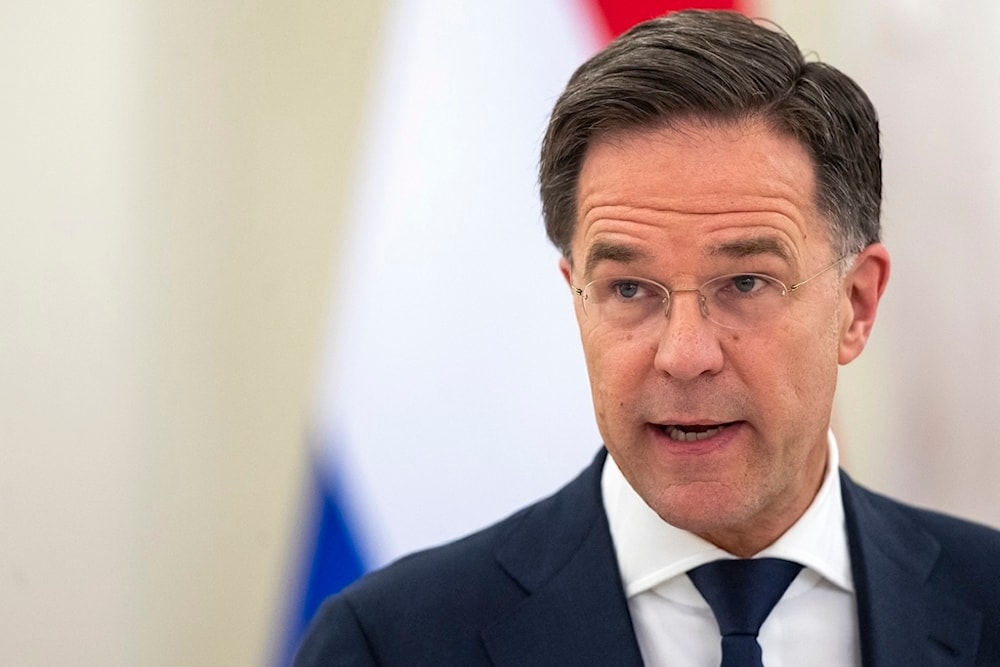Rutte to assume NATO leadership amid possible Trump return
Rutte, known for his pragmatic approach to Trump, has reassured anxious European allies, urging them to stop "whining" about a possible return of the former US president.
-

Dutch Prime Minister Mark Rutte speaks during a joint media conference with Lithuanian President Gitanas Nauseda at the President's palace in Vilnius, Lithuania, Tuesday, April 2, 2024. (AP)
Former Dutch Prime Minister Mark Rutte assumes the role of NATO secretary-general on Tuesday, as the Western military alliance faces a pivotal moment just weeks ahead of a crucial US election.
The 57-year-old succeeds Jens Stoltenberg, who led NATO for a decade during a period marked by the war in Ukraine, China's growing influence, and Donald Trump's presidency in Washington.
In a symbolic ceremony, both seasoned politicians will lay a wreath at NATO's Brussels headquarters to honor soldiers killed during the alliance's 75-year history, followed by a ceremonial handover using an Icelandic gavel.
Rutte, a staunch US ally and unwavering supporter of Ukraine, has been chosen by NATO’s 32 member states to continue backing Kiev and strengthening the alliance’s security.
His first significant test will be on November 5, when the US election could have major implications for his four-year tenure. Trump has threatened to withhold NATO protections from members who fail to meet defense spending targets and indicated that he could swiftly broker peace with Russian President Vladimir Putin to end the conflict in Ukraine.
Rutte, known for his pragmatic approach to Trump, has reassured anxious European allies, urging them to stop "whining" about a possible return of the former US president.
"We have to work with whoever is on the dance floor," he affirmed in February.
Yet, the uncertainty surrounding Western support for Ukraine lingers, as Russian forces continue advancing on the battlefield, more than three-and-a-half years after the start of the war.
NATO, whose members have provided 99% of foreign military aid to Ukraine, pledged at a summit in July to enhance its role in delivering those arms, a responsibility Rutte will be central to overseeing.
A key priority for Rutte will be to encourage NATO members to further increase defense spending. Driven by the war in Ukraine and pressure from Washington, European nations have already escalated their military budgets. This year, 23 countries are expected to meet the alliance's goal of spending 2% of their GDP on defense.
In his farewell message, Stoltenberg advised Rutte that his greatest challenge would be managing NATO's diverse and occasionally fractious leadership.
"That's a big family, a great family, but sometimes what is a challenge, to keep them all happy at the same time," Stoltenberg said in his final address.
Read more: NATO chair backs Ukraine striking Russia with long-range missiles

 3 Min Read
3 Min Read









